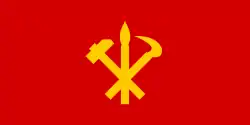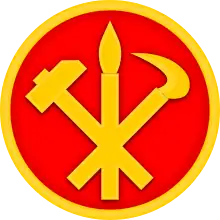Presidium of the Politburo of the Workers' Party of Korea
The Presidium of the Political Bureau of the Workers' Party of Korea, or simply the Presidium, and formely known as the Political Committee (1946–61), is a committee consisting of the top leadership of the Workers' Party of Korea. Historically it has been composed of one to five members, and currently has five members.[1] Its officially mandated purpose is to conduct policy discussions and make decisions on major issues when the Politburo, a larger decision-making body, is not in session. While the Presidium in theory reports into the Politburo, which in turn reports into the larger Central Committee, in practice the Presidium is supreme over its parent bodies and acts as the most powerful decision-making body in North Korea.[1] As North Korea is a one-party state, the Presidium's decisions de facto have the force of law.[2] Its role is roughly analogous to that of the Politburo Standing Committee of the Communist Party of China.
| Presidium of the Politburo of the Workers' Party of Korea | |
| Chosŏn'gŭl | |
|---|---|
| Hancha | |
| Revised Romanization | Chosŏn Rodongdang Chungang Wiwŏnhoe Chŏngch'igung Sangmu Wiwŏnhoe |
| McCune–Reischauer | Joseon Rodongdang Jungang Wiwonhoe Jeongchigung Sangmu Wiwonhoe |
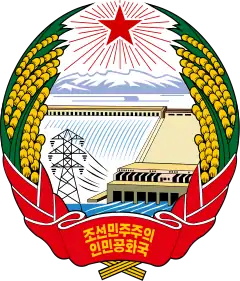 |
|---|
| This article is part of a series on the politics and government of North Korea |
|
|
History
The Presidium was revitalized at the 3rd Conference, with four new members appointed: Choe Ryong-hae (President of the Presidium of the Supreme People's Assembly, head of state), Choe Yong-rim (Premier, head of government), Vice Marshal Jo Myong-rok (Director of the General Political Bureau of the Korean People's Army) and Vice Marshal Ri Yong-ho (Chief of the General Staff).[3] The appointment of two military officers was considered by outside observers to be in line with Kim Jong-il's military-first politics.[3] It was believed that Ri Yong-ho was Kim Jong-un's personal military escort at the time, similar to O Jin-u's role during Kim Jong-il's early rule.[3] At the 4th Conference, Chasu Choe Ryong-hae was appointed to the Standing Committee.[4]
Current members
| Member | Member since | Other positions | |
|---|---|---|---|
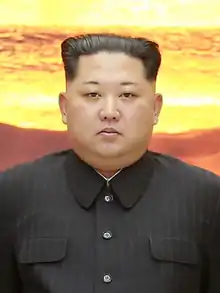 |
Kim Jong-un 김정은 (born 1984) |
11 April 2012 | |
.jpg.webp) |
Choe Ryong-hae 최룡해 (born 1950) |
9 May 2016 |
|
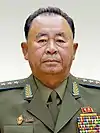 |
Ri Pyong-chol 리병철 (born 1948) |
13 August 2020 |
|
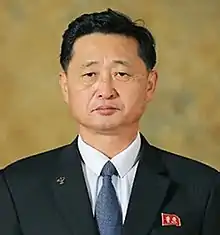 |
Kim Tok-hun 김덕훈 (born 1962) |
13 August 2020 | |
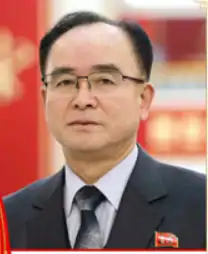 |
Jo Yong-won 조용원 |
10 January 2021[5] |
|
Former members
| Member | Term | ||
|---|---|---|---|
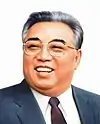 |
Kim Il-sung 김일성 (1912-1994) |
14 October 1980 | 8 July 1994 |
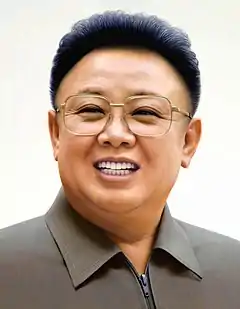 |
Kim Jong-il 김정일 (1941-2011) |
14 October 1980 | 28 September 2010 |
| 28 September 2010 | 17 December 2011 | ||
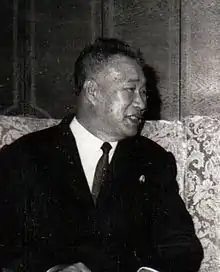 |
Kim Il 김일 (1910-1984) |
14 October 1980 | 9 March 1984 |
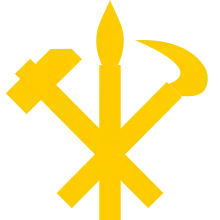 |
O Jin-u 오진우 (1917-1995) |
14 October 1980 | 25 February 1995 |
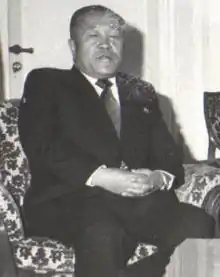 |
Ri Jong-ok 리정옥 (1916-1999) |
14 October 1980 | 17 June 1983 |
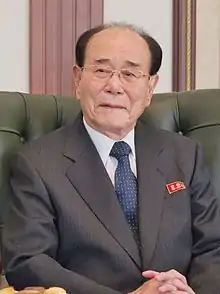 |
Kim Yong-nam 김영남 (born 1928) |
28 September 2010 | 9 May 2016 |
| 9 May 2016 | 11 April 2019 | ||
.jpg.webp) |
Jo Myong-rok 조명록 (1928-2010) |
28 September 2010 | 6 November 2010 |
 |
Ri Yong-ho 리영호 (born 1942) |
28 September 2010 | 15 July 2012 |
 |
Choe Yong-rim 최영림 (born 1930) |
28 September 2010 | 31 March 2013 |
.jpg.webp) |
Hwang Pyong-so 황병서 (born 1949) |
18 February 2015 | 20 April 2018 |
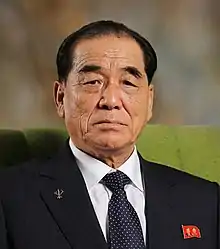 |
Pak Pong-ju 박봉주 (born 1939) |
9 May 2016 | 11 January 2021 |
References
Footnotes
- Pinkston, Daniel. "Leadership, guns, and money in North Korea: what happens if Kim Jong Un goes". NK News. Retrieved 30 April 2020.
- "金正恩が党委員長に就任(名簿)". Phoenix Television. 9 May 2016.
- Gause 2011, p. 148.
- "Kim Jong Un Appointed "First Secretary" of Korean Workers' Party". North Korea Leadership Watch. 11 April 2012. Archived from the original on 13 March 2014. Retrieved 13 March 2014.
- "Press Release of First Plenary Meeting of 8th Central Committee of WPK Issued". KCNA Watch. KCNA Watch. Retrieved 11 January 2021.
